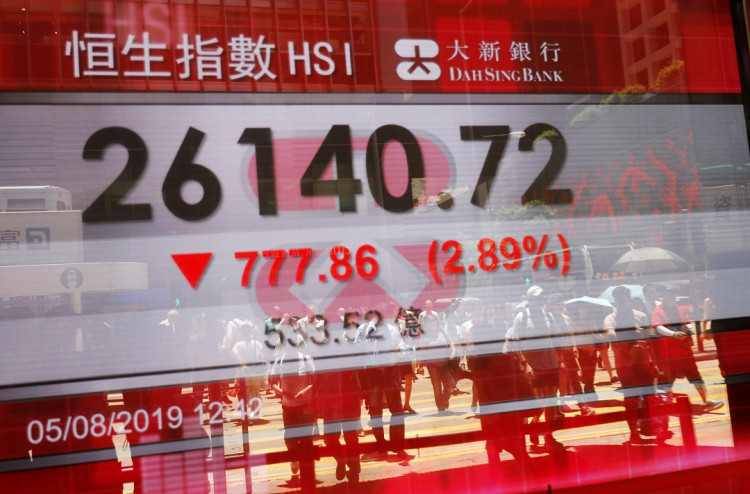Asian stocks rallied on Monday's early trading as investors wait for news about Beijing's potential moves to further stimulate the Chinese economy. Exports in August dropped sharply amid the ongoing China-U.S. trade war.
According to CNBC, the Shanghai composite added 0.59 percent, the Shenzhen composite edged up 0.705 percent, the Shenzhen component advanced 0.63 percent, and the Hang Seng index also gained 0.31 percent.
The Topix index gained 0.66 percent, Japan's Nikkie 225 hiked by 0.62 percent, Australia's S&P/ASX 200 advanced 0.15 percent, and South Korea's Kospi gained 0.95 percent.
While chipmaker SK Hynix shares soared by three percent, automaker Nissan shed 0.2 percent.
Investors are waiting to see if the Chinese government will decide to inject more stimuli to the slowing economy.
The People's Bank of China is expected to cut rates amid the slowing export sector.
Head of Asia economics at Oxford Economics, Louis Kuijs, said they believe more steps should be taken to stabilize growth for the coming year. He added that investors are expecting "visible improvements" as the months pass despite the previous month's sharp decline in exports to the United States.
On Friday, the People's Bank of China already announced a move to help improve the economy. The central bank said it will cut on cash that banks are able to control for reserves.
According to Reuters, the PBOC released around $126 billion in liquidity in efforts to pump up the economy. The move was already expected by most economic experts but they said the additional stimulus is needed to keep the economy afloat despite the trade war.
The latest move will take effect on September 16 and should encourage some developments in the economy. It is also expected to have some impact on investors who are otherwise unwilling to invest in Chinese markets due to uncertainties.
Most analysts noted that China has done enough and is expected to do more for the economy. The true problem lies within an apparent weakening in business confidence. Consumers are also becoming less excited about the news of a trade war affecting the global economy.
Previous reports indicated that U.S. President Donald Trump's battle with China is not about putting things in order. Instead, some analysts suggested that Trump is trying to "contain" Chinese markets, seeing that the country is gradually rising and could possibly take over the world's largest economy title.
Trump ordered American firms to leave China but many industry experts stated that he does not have the authority to force these companies to do so. After all, most tech giants do a lot of business in the Asian country.





